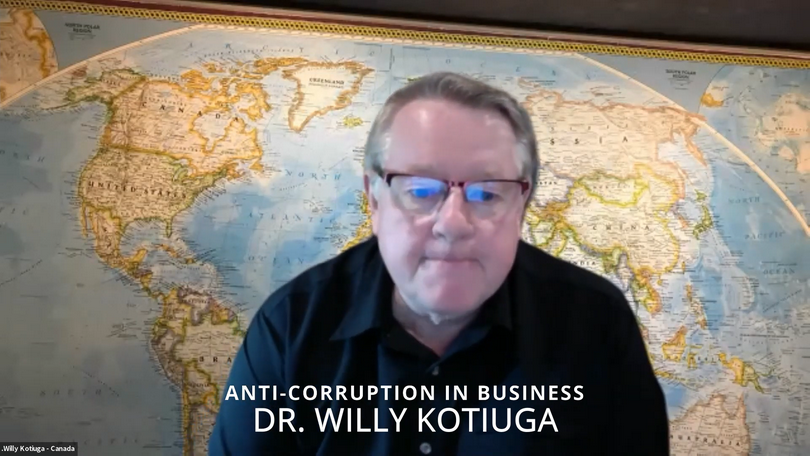A Christian senior director emphasized a covenantal relationship within businesses in a speech, encouraging Christians to claim the land of business integrity which God has marked out for us.
Dr. Willy Kotiuga, chairman of the Board of Regents of Bakke Graduate University, delivered a talk titled “Anti-corruption Perspectives and Practices in Business” at the Anti-Corruption Conference hosted by the Lausanne Movement and the World Evangelical Alliance’s Global Integrity Network on August 21.
In his talk, Dr. Kotiuga related his own experience and revealed the core of business corruption as turning away from a covenantal paradigm to a transactional framework, exhorting Christians to fight against corruption knowing that God had prepared the groundwork to hold businesses accountable.
With the experience of over 40 years in managing complex projects involving multiple stakeholders in over 25 countries, Dr. Kotiuga shared his story of being under inquisition for 18 months for the unethical practices of the company he worked for, and eventually, he was able to prove his innocence.
Looking back at that company, he tried to analyze why it ended up being charged for corruption. The company used to be a family-style operation that grew based on family principles where everyone watched out for one another.
“It was more of a covenantal relationship where each employee was their brother's keeper,” said Dr. Kotiuga.
After considerable growth in revenues and the number of employees, managers started to work to build their own "empires" instead of empowering the staff to work as a team. He concluded that “the company moved from a covenantal paradigm to a transactional framework”, where everything was based on giving and taking and the motivation became contractually driven as the covenantal paradigm got lost in the transaction.
“Rather than being our brother's keeper, we only did that when we got something in return,” he said.
The scripture also illustrated the difference between a covenantal relationship and a transactional framework: the early church grew rapidly when believers shared everything in a covenantal paradigm, while Ananias and Sapphira’s behavior of corruption was an example of a transactional framework.
“Corruption gets snuffed out in an actual covenantal environment because it cannot survive where everyone genuinely watches out for one another,” stated Dr. Willy Kotiuga.
Likewise, anti-corruption principles have always been an assertion of God, who has laid the foundation of integrity in his word. Dr. Willy Kotiuga reminded us that God had been moving the hearts of today's corporate world through the books of the prophets since 850 BC, and the 16 prophets stressed key themes including compassion, transparency, community, integrity, etc.
Especially, Dr. Kotiuga highlighted that these prophets were prophetically disruptive, upsetting the status quo, instead of following the political correctness, because the role of a prophet was to bring people back to God by upsetting the status quo.
He expanded, “We are called to promote integrity in the business world by being prophetically disruptive. Prophetic disruptiveness is essential in restoring a covenantal relationship with God, a relationship fully accountable to Him.”
Although many biblical concepts have been adopted in modern business ethical consultancy, Dr. Kotiuga stressed that an obedient heart and a covenantal relationship with God remained essential.
“The pathway to sustainable change is to work alongside what God is already doing,” he explained. “His presence and leadership are essential in each step of the way.”
At the end of his talk, he briefly described that many small victories of anti-corruption had been achieved in the business world, and continued to call for Christians to “walk with God to lead the way to integrity that restores the covenantal relationship [that] God always intended us to have with Him”.
He added, “We must let God teach us how to be prophetically disruptive.”












